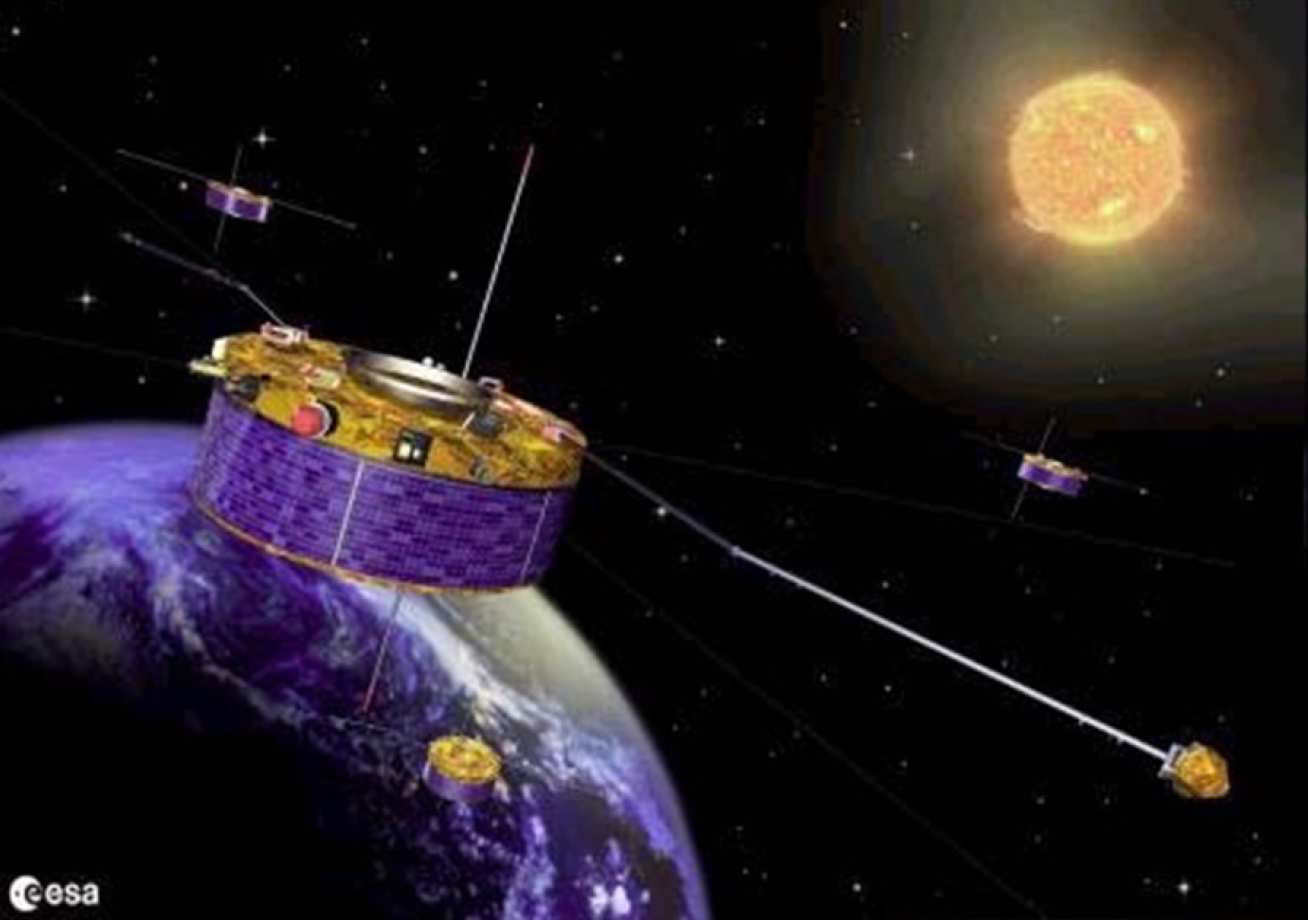
Cluster is a scientific mission of the European Space Agency (ESA), with the aim to study the space environment of the Earth.
Mission Summary
The mission consists of four identical spacecraft flying in formation, separated from each other by distances of hundreds to thousands of kilometres. Cluster is providing the first opportunity to determine the three-dimensional, time-dependent characteristics of the small-scale processes and structures in the near-Earth space plasma, both in the magnetosphere and in the nearby interplanetary medium. The four spacecraft were placed in an eccentric polar orbit around the Earth, with an apogee of 19.6 RE and a perigee of 4 RE (where RE is the radius of the Earth). The scientific instruments onboard the four spacecraft have been sending back excellent data that form a rich resource for the study of the complex processes that shape the space environment of the Earth.
Cluster
- Launched: 16 July 2000 (Spacecraft 2 & 3) and 9 August 2000 (Spacecraft 1 & 4).
- No. of spacecraft: 4.
- Orbit: Eccentric polar orbit 25500 - 125000 km altitude.
- Mission Lifetime: Original Lifetime: Launch to December 2005. Mission Extension1: To December 2012. Mission Extension2: To December 2014. Mission Extension3: Requested to December 2016
- Imperial College Involvement:
- Fluxgate magnetometer (FGM): 3 axis fluxgate magnetometer on each satellite providing vectors at rates of up to 67 vectors per second. Hardware for this instrument was provided by the Space Magnetometer Laboratory.
- Original Principal Investigator: Andre Balogh for FGM from selection to 2005. Former Principal Investigator: Elizabeth Lucek for FGM from 2005 to 2012. Current Principal Investigator: Chris Carr for FGM from 2012 to present
- Cluster Science Centre: providing science tools to the scientific community
- Project Scientist: Steve Schwartz
- Cluster Co-Investigators: Peter Cargill(FGM & PEACE), Chris Carr(FGM), Tim Horbury(FGM), Elizabeth Lucek(CIS & PEACE), Steve Schwartz(PEACE & CIS & FGM).
Internal Links
External Links
 Imperial College participation in the Cluster mission is funded by the UK Science & Technology Facilities Council.
Imperial College participation in the Cluster mission is funded by the UK Science & Technology Facilities Council.